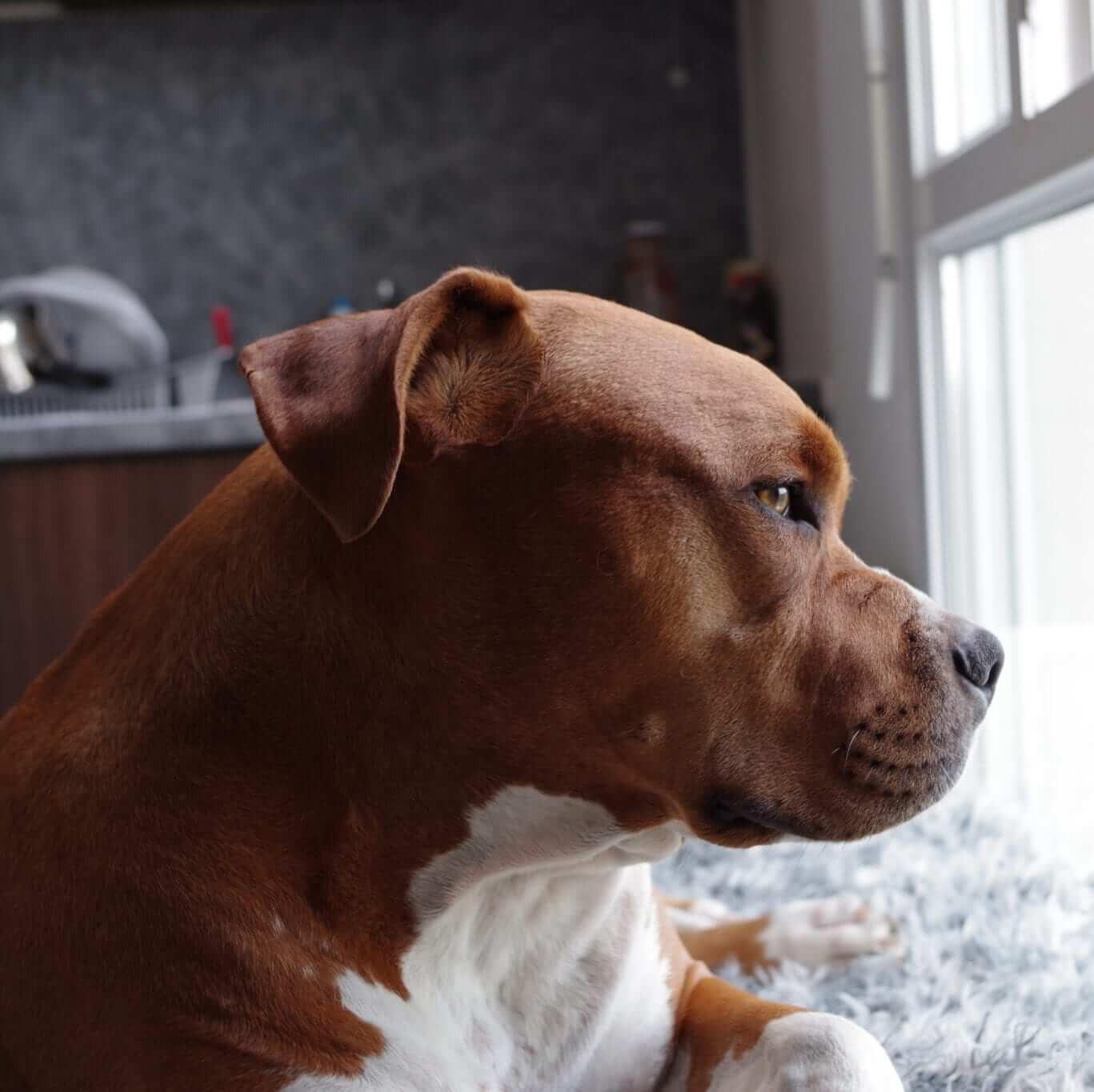Pit Bull Health Issues – What to Watch Out For
Happy Pit Bull Awareness Month! Pit bulls, or, pitbulls are not technically a specific breed of dog, but rather an umbrella term for dogs with stocky, muscular builds that are the descendants of bulldogs and terrier breeds, originally bred for their strength and tenacity.
The most notable breeds in the pit bull category are:
In this article, we’re addressing pit bull health problems that may affect American Staffordshire Terriers and pit bull mixes.
Common Pit Bull Health Issues
As we celebrate the muscular, good-natured pit bull breed category in October, we want to shed light on some of the most common pit bull health issues. Like all dog breeds, pit bulls are predisposed to certain conditions, and it’s wise to keep watch for these more typical pit bull (or pitbull) health issues.
Health Issue #1: Hypothyroidism and Obesity
A common problem with pit bulls is hypothyroidism, which is a condition that causes their bodies to create too little of their thyroid-stimulating hormone. Hypothyroidism is sometimes thought to be caused by the dog’s immune system attacking the thyroid, or in rare cases, a tumor on the thyroid glands. This can lead to weight gain, hair loss, dry skin, behavioral changes, and other skin diseases.
Hypothyroidism may lead to weight gain and obesity in your pit, although obesity is not a common health problem for pit bull breeds. If not managed, obesity can lead to heart disease and other health conditions that could negatively impact your pup’s life, and no one wants to see their pup suffer.
If you notice any of these signs, reach out to your vet! Hypothyroidism is diagnosed through a blood screening test and can usually be treated with a hormone replacement pill. For weight gain, your vet may recommend a weight management plan and specific dog food for your canine.
Common signs of hypothyroidism in pit bulls:
weight gain
hair loss
dry skin
behavioral changes
other skin diseases
Health Issue #2: Hip Dysplasia
Hip dysplasia is a genetic disease that occurs when the hip joints function incorrectly, resulting in arthritis. Hip dysplasia can cause difficulty standing up or lameness in the hind legs. Pit bulls should have regular hip evaluations to screen for this.
Common signs of hip dysplasia are:
difficulty standing up
lameness in hind legs
decreased activity
“bunny hopping” gait
loss of thigh muscle mass
Health Issue #3: Skin Irritation And Infections
Pit bulls are particularly prone to different forms of skin irritations and skin problems, whether this is from allergies, ichthyosis, or other infections.
Like humans, pit bulls can be allergic to pollen, dust, or mold. A pit bull affected by allergies may rub their paws and face together, have frequent ear infections, and suffer from dry skin.
Ichthyosis is a severe flaky skin condition, which usually shows up in dogs as puppies. Ichthyosis is highly noticeable because massive, scaly flakes will come off their skin. Another skin-related health problem pitbulls may develop are skin infections, usually due to a zinc deficiency or inability to absorb zinc properly.
Skin allergies, irritations, and infections typically result in noticeable symptoms and can usually be treated by your vet to relieve your dog’s discomfort.
Common signs and symptoms of skin irritation and infections in pit bulls:
dandruff flakes
thickening of skin and footpads
red, crusting, or scaling skin around the mouth, chin, eyes, and ears
Health Issue #4: Knee Problems
Another common pitbull health issue is a luxating patella, which occurs when a pit bull’s kneecap, their patella, slides out of place. This can cause the dog to suddenly hop or pick up their hind leg until their kneecap slips back into place.
In severe cases, surgery may be necessary to realign the kneecap to prevent it from slipping.
Signs and symptoms of knee problems in canines:
skipping or hopping a few strides
swinging leg out to “pop” the kneecap back into place
limping
Regular Care
Beyond these specific pitbull health problems, it’s essential to have your vet check your pit bull for other common canine health issues regularly.
Many dogs suffer from periodontal disease, a painful infection of the tissues holding their teeth in place, which can largely be prevented with regular dental care. Check out dog teeth cleaning costs and our pet dental insurance page for more information.
Health Outlook Of Pit Bulls
Each breed within the pit bull category has a slightly different life expectancy given their height, weight, genetic predisposition, and more; but, on average, healthy pit bulls can live anywhere from 10 to 14 years.
Purebreds are prone to a higher risk of breed-specific health conditions, causing their life expectancy to shorten a little; pit bull and terrier mixes will certainly live long lives given their mixed genetics.
Better Health With Dog Insurance For Your Pit Bull
Be sure to give your pit bull regular checkups at the vet for optimal health. Your vet will be sure to examine your canine for preventative maintenance and recommend any course of action they believe will help your dog live their longest, healthiest life possible.
A pet insurance plan is a great option to help plan future vet care costs or for when the unexpected happens. Spot Pet Insurance offers a variety of coverage options to meet you and your pit bull for wherever you’re at in their health and life journey.

I've had the privilege of immersing myself in the realm of pet safety. As the owner of an energetic mini golden doodle, I know just how stressful being a pet owner can be. I am dedicated to ensuring our beloved pets enjoy a life brimming with good health.












